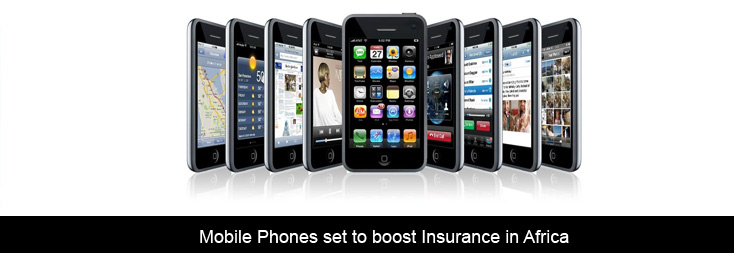Insurers not focusing on the benefits of mobile phones in Africa will miss out!
Mobile phones have changed the way many consumers do business. More and more applications allow for easy and swift mobile payments on smartphones.
Developing countries are not far behind in mobile transactions. The mobile phone technology exists – it is now up to business to bring the business products to the consumer.
What is the reach of mobile phones in Africa?
How many consumers and potential clients can be reached via mobile phones in Africa?
I would like to refer to a report released via Reuters:
“In ten years alone, close to 400 million Africans have acquired mobile phones, representing phenomenal growth from a subscriber base of 80 million in 2001. Telecoms companies have leveraged this substantial level of “cellular“ adoption by investing aggressively in infrastructure, and advancing mobile services and capabilities.
Mobile penetration in sub-Saharan Africa now stands at 49 subscribers per 100 inhabitants, compared to fixed-line penetration of only 16 phone-lines per 100 inhabitants. This demonstrates how Africa has, quite uniquely, managed to leapfrog the telephone-line stage of development, and dive straight into mobile technologies.
The most important implication for suppliers of mobile healthcare solutions is that market access will be easier in Africa than in developed countries due to less stringent, and underdeveloped, regulatory environments.”
Healthcare via mobile phones
It is not only business who is to benefit from the expansion of technology across Africa. There are also new applications in healthcare, and according to the latest research by Frost & Sullivan, health systems in Africa are uniquely positioned to benefit from this mobile revolution.
Information and communication technologies (ICT) have the potential to help poor countries strengthen their health systems and move towards attaining the Millennium Development Goals (MDGs). “Governments in Africa have launched various telemedicine initiatives aimed at extending health services provision,” comments Frost & Sullivan Healthcare Industry Analyst, Ishe Zingoni.
What is Telemedicine?
Telemedicine is essentially the use of ICT to provide health services when the medical professional and patient are separated by distance. “A classic example is that of a specialist located in an urban hospital treating a patient at a distant clinic via e-mail or video conferencing. Telemedicine in this form represents the perfect solution to Africa’s battles with persistent shortage of qualified health professionals,” explains Zingoni.
According to Frost & Sullivan, the mobile phone platform has unlocked unprecedented opportunities for the provision of services to millions of Africans who previously had no access to technology and were virtually unreachable. “The mobile phone is being leveraged to provide services at less than 25% of the cost of traditional healthcare delivery models,” says Zingoni.
Insurance and Mobile phones
Several insurers are following the large South African retailers into Africa. In an earlier post we featured a post titled “MTN and Hollard partner in first mobile money life insurance service in Ghana”
What are the potential for selling insurance? I would like to quote from this post :
“According to a Lloyds study in 2009 the market for efficient, cheap and simple insurance in developing countries is estimated to be between 1.5 and three billion policies. The ubiquity of mobile and strength of the MTN brand makes Mobile Money the ideal platform to deliver financial services in Africa.”
It should be clear that many consumers in Africa can be reached via mobile phones – and insurers will need to be pro-active in pursuing these markets! Those who do not seek to benefit from the explosion in mobile phone technology will do so at their peril!!




